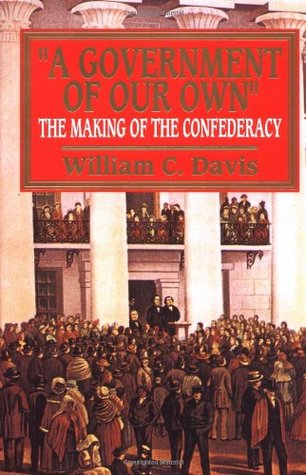The War for Southern Independence reminds us of many things, not least of which that there were once many men who were willing to take up arms to defend what they believed to be their birthright as Americans. It was not by chance that the Great Seal of the new nation featured George Washington, for the Confederates saw themselves as following the road that the great Southerner had trod in leading the secession from England.
As Jefferson Davis said, “When the cause was lost, what cause was it?” It was, he went on, not “of the South only, but the cause of constitutional government, of the supremacy of law, of the natural rights of man.” The war to subjugate the South was “on the part of the United States Government, one of aggression and usurpation, and, on the part of the South, was for the defense of an inherent, unalienable right.” Looked at another way, the War for Southern Independence gave us the Gilded Age of plutocratic plunder and created the dynamics for the multicultural muddle that is already driving America into open ethnic conflict. Southerners realized where things were headed when an ambitious prairie lawyer was elected the 16th President of the United States.
Thomas R.R. Cobb recognized Lincoln’s election for what it was: the triumph of the first avowedly sectional party in the Union’s history, a party that did not shun—indeed, that welcomed—the support of the zealots who fueled John Brown’s rage with financial and moral support. “These people hate us,” he told his wife. The reason was simple: “They are a different people from us, whether better or worse and there is no love between us.” Cobb recognized that two different cultures would be best off as separate entities. He then proceeded to help create a new nation.
William C. Davis’s book is a detailed chronicle of how this new nation came to be, from the tocsin of Lincoln’s election to the Confederate government’s transfer from Montgomery to Richmond in May 1961. Like Davis’s biography of Jefferson Davis, it does not give the Southern cause the benefit of the doubt on issues of historical controversy (such as the place of slavery as a feature of Southern nationalism). But it docs fix the men assembled in convention at Montgomery in the role that they understood themselves as playing: heirs of the Kramers of the original Constitution, and heirs to the legacy of 1776. As the Reverend Basil Manley prayed, in the opening prayer of the convention of the seceded states, “Oh, thou heart-searching God, we trust that Thou sees we are pursuing those rights which were guaranteed to us by the solemn covenants of our fathers, and which were cemented by their blood.” Davis is quite clear in his interpretation that this is a conservative revolution; indeed, as he points out, Manley’s voice was the first of many to strike this theme.
The enterprise, then, was more of a restoration than a revolution; and nothing highlights this truth more than the use of the old federal Constitution as the framework for the Confederate Constitution. Davis’s treatment of this part of the story is solid, and reaffirms from the perspective of anecdote the point that Marshall DeRosa has made so well in his definitive work on the subject, The Confederate Constitution of 1861: that the Confederacy was an effort to maintain the liberty which flourished under the old Republic.
One facet of the historical record that constantly surprises is the difficulty prosecessionists had in convincing the mass of people that a long train of abuses had necessitated the final step. This suggests that, for all the great sacrifices endured by the men and women who stood by her, the South was not as united on a single course of action as might be expected. That lack of unity bode ill for such a desperate bid for liberty.
It has been likewise throughout Southern history, and in ever-increasing measure in the present age. This is one reason why any contemporary talk of Southern secession is naive and premature at best. If Southerners were unwilling to close their public schools for good in the wake of Brown v. Board of Education in 1954, there can be little doubt that today, when issues of much greater importance generate far less emotion and threaten what is left of their native culture, they will meekly obey the powers-that-be rather than show some spunk. Which merely confirms an old prediction.
The cause of the South will never again take quite the same form that it took in 1860. The Southern Agrarians’ prediction that the Industrial Revolution would eviscerate the particular regional identity of the South has come all too true, and any future effort to revive the political philosophy of regional particularity and decentralized government must take into account the economic ties that strap these states into the network of a larger, ever more despotic federal union. It may well be years before any sense of regional, ethnic, and cultural identity causes Americans to rebel against their fate beneath the wheel of a government that panders to Wall Street and to the managerial elite that profits from plutocracy. It may well be years before disgust at the sight of self-appointed leaders groveling at the feet of ever-unsatisfied special interests causes Middle America to determine that the time has come to show these charlatans the door. Eventually, the contradiction of impoverishment in a land of plenty, and the consistent war upon traditional values in a culture that is disintegrating precisely because those values have been undermined, will become too glaring to ignore. It is then that the cause of the South will be seen as the cause of Western civilization.
[A Government of Our Own: The Making of the Confederacy, by William C. Davis (New York: The Free Press) 550 pp., $27.95]

Leave a Reply